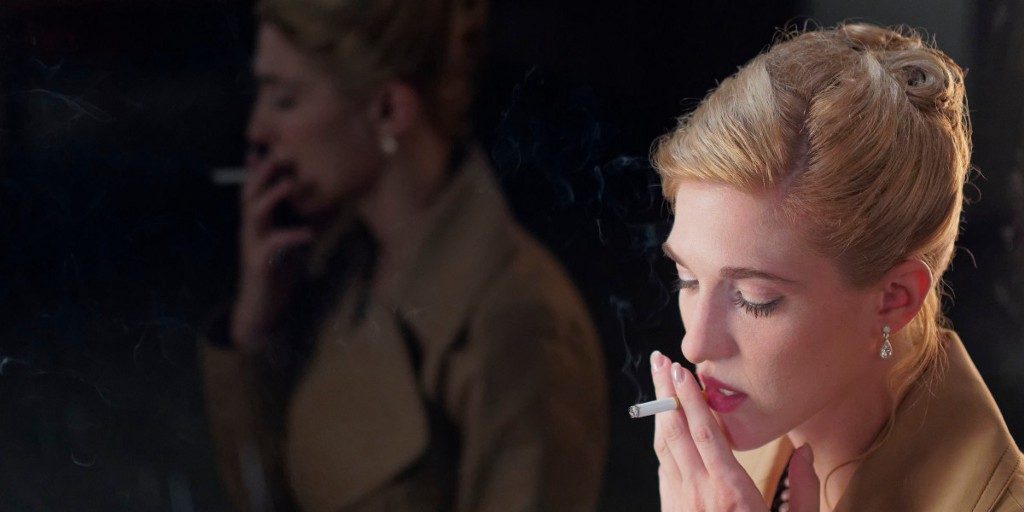Anne Émond lives and works in Montreal. Between 2005 and 2011, she wrote and directed seven short films, “Naissances” and “Sophie Lavoie” among them, which screened at several international festivals and won many prizes. In 2011, she directed her first feature film, “Nuit #1,” which screened at more than 25 international film festivals, including TIFF. “Les êtres chers,” her second feature, was released in 2015.
“Nelly” will premiere at the 2016 Toronto International Film Festival on September 9.
W&H: Describe the film for us in your own words.
AE: “Nelly” is a fictionalized biography of the author Nelly Arcan, a very well-known novelist in Quebec and in France. She had a very complex and unbelievable life and the film, in it’s free and chaotic narrative form, reflects her claustrophobic but beautiful writing, as well as her tortured and roller-coaster life.
W&H: What drew you to this story?
AE: As a woman, artist, and reader, I have always been fascinated by the books of Nelly Arcan and by the her public persona. How fascinating that this woman with fake lips, fake huge boobs, and fake blonde hair with such a strange, fragile, and sensual vibe was the writer of the best novels in Quebec since Hubert Aquin!
I dove into her tragic life and for three years I have been engulfed by her words, her relationships, her success, her excess, her drowning. I slowly came to realize how this film could be universal in that every woman could identify with either of her many facets. She has been a lover, a writer, a mother, a whore, a best friend, an enemy, a star, and a failure.
W&H: What do you want people to think about when they are leaving the theatre?
AE: I hope they’ll want to read the works of Nelly Arcan. I also hope they feel sad for her and think about how tough this society can be for sensitive people that are somehow unsuited for it.
W&H: What was the biggest challenge in making the film?
AE: It was to find the best actress. Once that was done, it was a pure joy.
W&H: How did you get your film funded? Share some insights into how you got the film made.
AE: I am based in Montreal, Quebec in Canada, so my film was mostly funded by public financing.
W&H: What does it mean for you to have your film play at TIFF?
AE: My two previous features were screened at TIFF, so I know how important and good the festival is for the [film’s future] in terms of international film festivals, sales agents, buyers, etc. It also means that i’m starting to get nervous thinking about the premiere and I hope people will love the film.
W&H: What’s the best and worst advice you’ve received?
AE: I forgot the bad advice but the best advice was to stay honest and stay true to myself.
W&H: What advice do you have for other female directors?
AE: Don’t make your films to please anybody — critics, festivals, the public, etc. Make your films because you have no choice but to tell those stories.
W&H: Name your favorite woman-directed film and why.
AE: I have many favorite female directors! Chantal Akerman, Agnès Varda, Andrea Arnold, Mia Hansen-Love, Céline Sciamma, Sofia Coppola, Lena Dunham, Susanne Bier, Sarah Polley. Marguerite Duras, etc. Not because they are women, but because they make good films.
W&H: Have you seen opportunities for women filmmakers increase over the last year due to the increased attention paid to the issue? If someone asked you what you thought needed to be done to get women more opportunities to direct, what would be your answer?
AE: It’s such an important question. I have worked so much in the last three years that I haven’t had the time to think about this issue, which I believe is a good sign!







